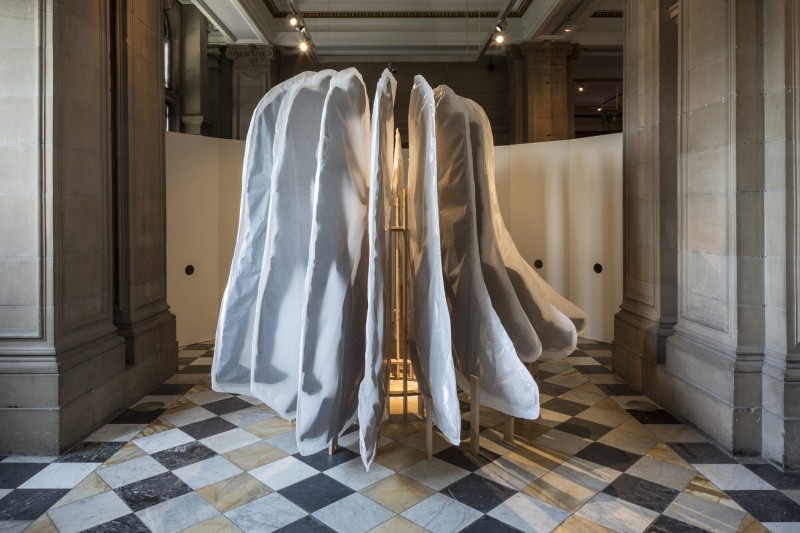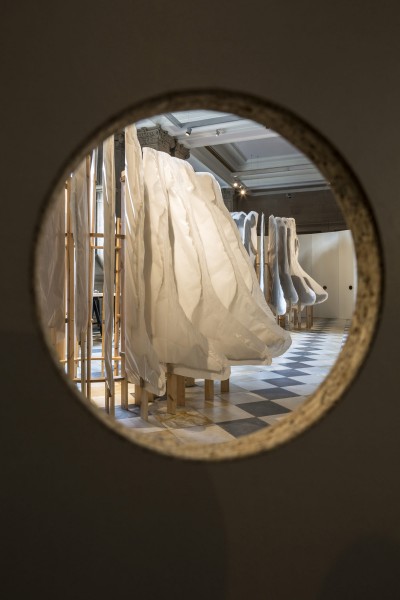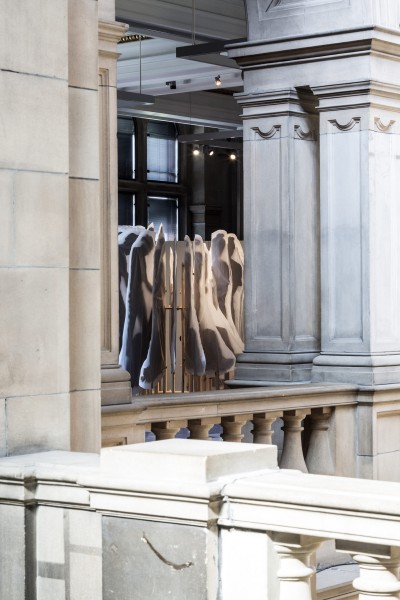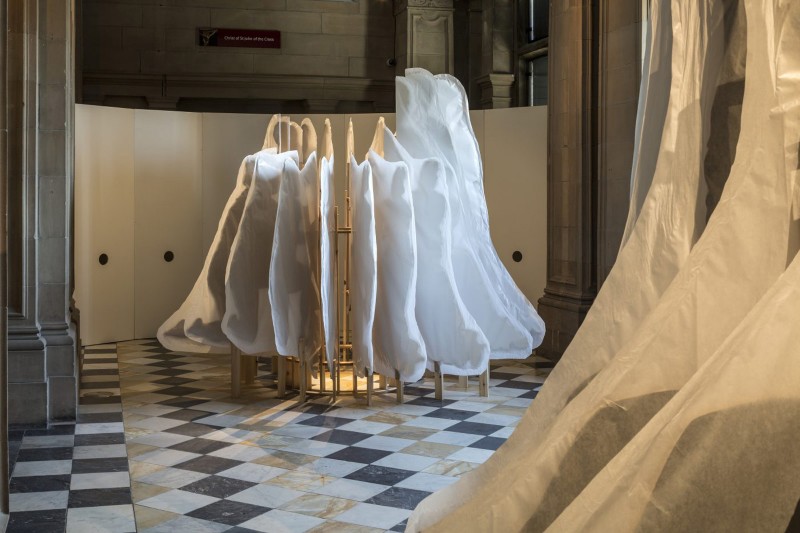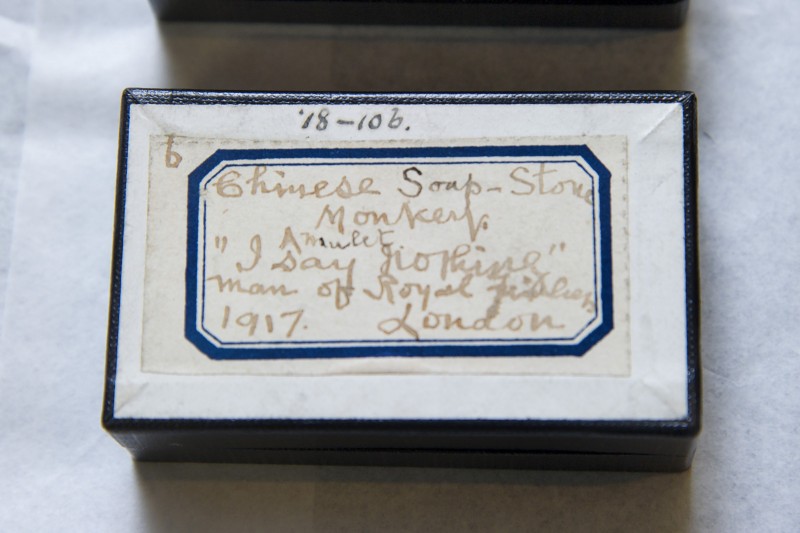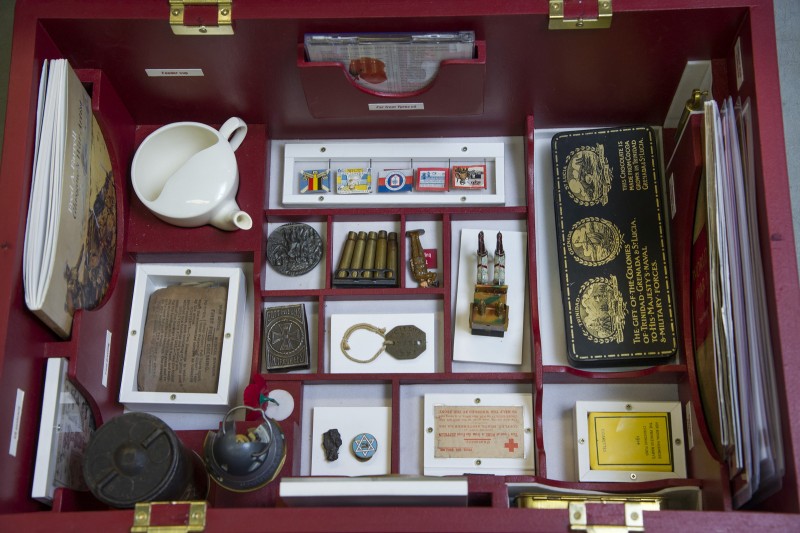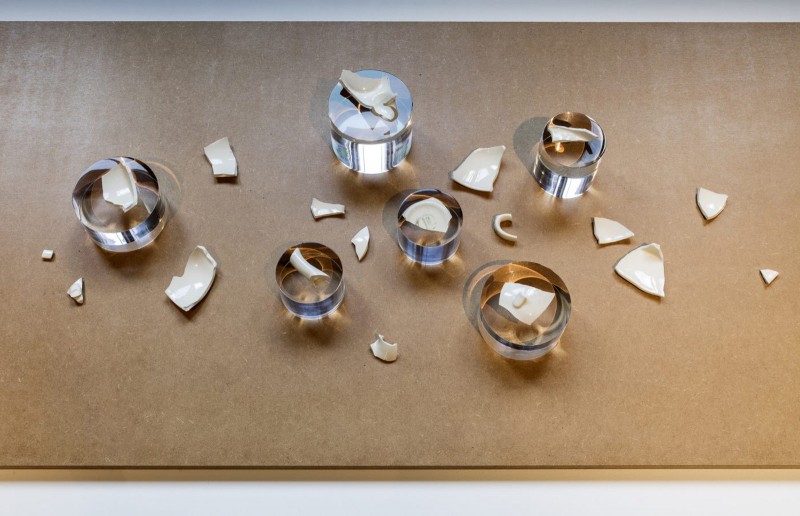Christine Borland
I Say Nothing
I Say Nothing is a large-scale sculpture made by Scottish artist Christine Borland in response to Glasgow Museums’ World War I collection. The work, made to stimulate critical reflection on the First World War, as well as on museum collecting and care, was presented at Kelvingrove Art Gallery and Museum and became part of the collection there.
In 1918 and 1919, Glasgow Museums purchased a collection of boxes containing charms and amulets ‘worn by the fighting men in the Great War’. The handwritten title of one of the charms (a Chinese soap-stone monkey) is ‘I say nothing’. These, along with three mule hooves, a moss- filled pillow and a book of French grammar riddled with shrapnel holes, are among the objects to which Christine Borland found herself drawn during a year of research at Glasgow Museums Resource Centre.
Of particular interest to the artist was a modest white ceramic invalid feeder cup in the museums’ handling collection. The teapot-like object, examples of which were used both to nurse the sick during the war and force-feed hunger-striking suffragettes in the years running up to 1914, speaks of the duality of institutional care and brutality. This object became the lynchpin for the whole artwork.
Through an expanded focus on this object, Borland explored the potential for a simple object to embody something much more than the reality of its humble form or material. While the stasis of storage – or, indeed, the passing of time – can render historical objects mute, I Say Nothing aims to give them a voice. I Say Nothing is a challenging artwork on many levels and one which forces us to consider the themes of loss and absence evident in many of the stories told by those who fought in the Great War.
About the artist
Christine Borland (born 1965) is a Scottish artist born in Darvel, Ayrshire, Scotland. Borland is one of the Young British Artists (YBAs) and was nominated for the Turner Prize in 1997 (won by Gillian Wearing) for her work From Life at Tramway, Glasgow. Borland works and lives in Kilcreggan, Argyll as a BALTIC Professor at the BxNU Institute of Contemporary Art.
Borland studied Environmental Art at the Glasgow School of Art and later was awarded an MA from the University of Ulster in 1988. She was on the committee of Transmission Gallery, Glasgow from 1989 to 1991. In 2004, she became one of five artist awarded the prestigious Glenfiddich Artist in Residence programme. In 2012 she was appointed BALTIC Northumbria University Professor – where she heads the Institute of Contemporary Art in Newcastle. This is a collaborative venture between Northumbria University and the BALTIC Centre for Contemporary Art.
Co-commissioned by 14-18 NOW and Glasgow Museums with support from the Art Fund
